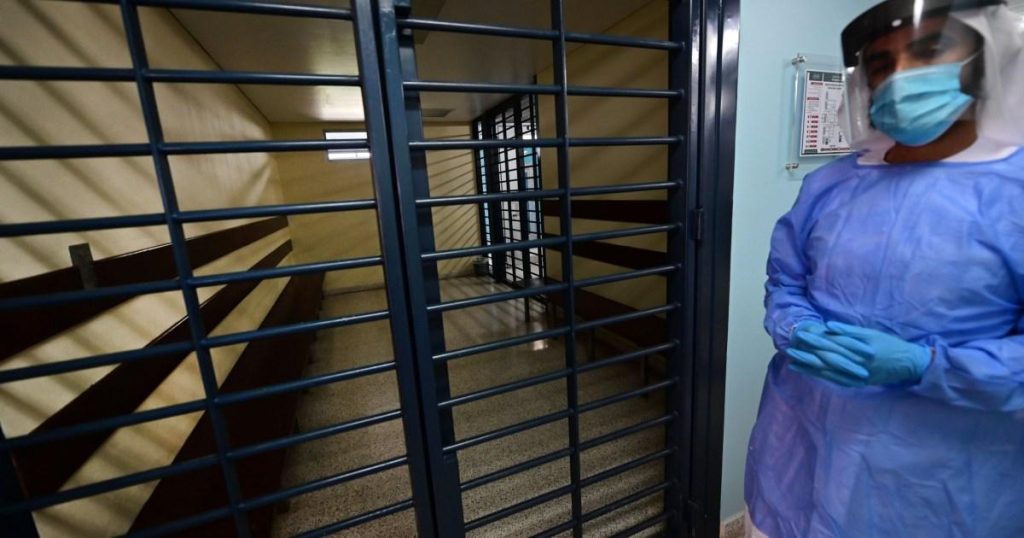Paragraph 1: The Case of Marcus Fakana
Eighteen-year-old British citizen Marcus Fakana faces a year-long imprisonment in Dubai’s Al Awir prison following a holiday romance with a 17-year-old girl. While consensual sexual activity between the two teenagers would be legal in the UK, it violates UAE law, where sex outside of marriage is prohibited for individuals under 18. Fakana voluntarily surrendered to authorities in September 2024 after the girl’s mother filed a complaint. The news has devastated Fakana and his family, who maintain he had no intention of breaking the law. He has issued a plea to Dubai’s ruler, Sheikh Mohammed Al Maktoum, requesting clemency and permission to return to the UK, seeking to avoid what has been described as the "hellhole" of Al Awir prison.
Paragraph 2: Al Awir Prison: A History of Brutality
Al Awir prison, Fakana’s designated place of confinement, has gained notoriety for its harsh and often inhumane conditions. Reports from former inmates paint a grim picture of the facility, citing rampant violence, torture, and inadequate healthcare. Rape is allegedly commonplace, perpetrated by both inmates and guards. Karl Williams, a British national who spent a year in Al Awir after being convicted on drug charges, described witnessing stabbings, enduring electric shocks to his testicles, and living under the constant threat of sexual assault. He characterized the prison as being controlled by "Russian gangsters," who allegedly used HIV-positive inmates to infect and rape others.
Paragraph 3: Overcrowding and Deplorable Living Conditions
The physical environment within Al Awir is reportedly as appalling as the violence that takes place there. Severe overcrowding is the norm, with cells designed for three or four people often housing up to 20 inmates. Prisoners are sometimes forced to share beds, and basic hygiene is compromised. Testimonies from former female inmates reveal even more dire circumstances, with reports of minimal access to sunlight and severely limited space. Zara-Jayne Moisey, a British woman imprisoned in Al Awir after reporting her own rape, described the experience as "absolute torture," recounting the constant manipulation of lighting to disrupt sleep and the overall horrific nature of the facility.
Paragraph 4: Denial of Healthcare and Discriminatory Practices
Beyond the physical hardships and violence, accusations of inadequate healthcare and discriminatory practices within Al Awir have also surfaced. A 2019 Human Rights Watch report documented the denial of life-saving HIV treatment to foreign detainees, highlighting the vulnerability of those with health conditions. Despite regular testing for HIV, prisoners reported being denied access to necessary medication. While UAE authorities have claimed adherence to international human rights standards and denied discrimination based on health status, inmate testimonies contradict these assertions, alleging indifference to requests for medical care and stigmatization of HIV-positive prisoners.
Paragraph 5: Seeking Clemency and Public Support
Faced with the prospect of incarceration in this notoriously harsh environment, Fakana and his family are pinning their hopes on a pardon from Sheikh Mohammed. Detained in Dubai, a human rights organization specializing in UAE legal cases, has taken up Fakana’s cause, urging the UK Foreign Secretary and the British embassy in the UAE to intervene on his behalf. Their argument centers on the disparity between legal systems, emphasizing the consensual nature of the relationship and the fact that Fakana’s actions would not be criminalized in his home country. A GoFundMe page established to cover Fakana’s legal expenses has garnered significant public support, exceeding its initial target.
Paragraph 6: Hopes for a Swift Resolution
Detained in Dubai CEO Radha Stirling has expressed hope that Dubai authorities will recognize the detrimental impact of imprisoning a young tourist for an act that is legal in his own country, and will ultimately grant clemency. Fakana has reportedly chosen to begin his sentence rather than pursue an appeal, believing this might expedite his return home. He remains hopeful that the UK government’s intervention and a potential pardon from Dubai’s ruler will lead to a swift resolution. He is prepared to focus on his physical and mental well-being during his incarceration, while his family and supporters continue to advocate for his release. The case raises complex questions about cultural differences, legal jurisdictions, and the treatment of foreign nationals within the UAE’s justice system.











